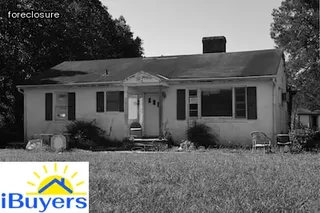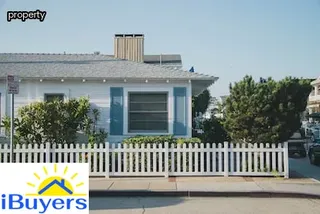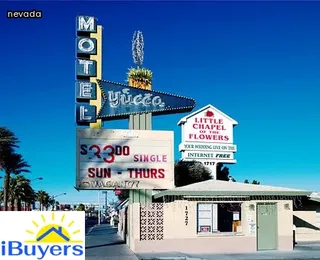Nevada foreclosure laws are designed to protect homeowners in the event of a missed mortgage payment. The process begins when a homeowner receives a notice of default, which is the official notification that the mortgage payments have not been paid on time.
At this point, the lender has the right to start the foreclosure process and take ownership of the home. To avoid this situation, it is important for homeowners to understand Nevada’s foreclosure laws and processes.
In Nevada, lenders are required to provide at least 30 days for homeowners to pay their past due balance before initiating foreclosure proceedings. If a borrower is unable to pay off their debt within that window, they can still apply for mediation or forbearance with their lender in order to try and negotiate a repayment plan or loan modification.
Additionally, once foreclosure proceedings have started, borrowers may be able to appeal if they believe they have been treated unfairly by their lender. Homeowners should also be aware that all foreclosure sales must occur at public auction and must follow strict guidelines set out by Nevada law.
Knowing these laws can help homeowners protect themselves from financial hardship caused by an unexpected foreclosure situation.

In Nevada, there are two types of foreclosure processes that homeowners need to understand. The first is judicial foreclosure, which is a process that requires the lender to file a lawsuit against the homeowner and obtain a court order for the sale of the home.
The second type is non-judicial foreclosure, which does not require a court order and instead is handled by an independent third party. This type of foreclosure allows for a quicker resolution since it does not involve lengthy court proceedings.
In both instances, lenders can take possession of the home if payments are not made on time and all other requirements have been met. For homeowners in Nevada facing foreclosure it is important to be aware of their rights and options under state law to protect their financial interests.
In Nevada, preforeclosure is a process that occurs when a homeowner fails to make payments on their mortgage and the lender initiates foreclosure procedures. Preforeclosure is a critical stage for homeowners as it provides them with the opportunity to take action and potentially avoid foreclosure.
During this period, lenders are required to provide homeowners with certain notices outlining their rights and obligations in regards to the preforeclosure process. Homeowners should familiarize themselves with these notices so they understand what actions they may be entitled to take and any steps they may need to follow.
It's important to note that during this period, Nevada law also requires lenders to consider loan modification or other alternatives before proceeding with foreclosure. This is why it's important for homeowners in Nevada to stay informed about the preforeclosure process in order to be able to act quickly if necessary.
Homeowners can find additional resources and information about understanding foreclosure laws and processes in Nevada online or through non-profit organizations such as housing counseling agencies.

As a homeowner in Nevada facing foreclosure, it is important to know that there are rights you can exercise during the process. Under Nevada law, homeowners are entitled to receive written notice before their property can be foreclosed upon.
This notice must include information about the foreclosure process and how to stop it. The lender must also provide a written statement of the amount owed on the loan and a list of documents required for reinstatement or redemption of the loan.
Homeowners have certain time limits set by law that they must comply with in order to keep their home from being sold at auction. Additionally, during this time a lender may not take steps to evict the homeowner from their property.
As such, homeowners facing foreclosure should contact an attorney familiar with the state's laws and process to determine what options they have available to them and how best to protect their rights through this difficult process.
If you can't pay your mortgage, the first thing to do is contact your lender as soon as possible. Most lenders are willing to work with homeowners who are facing financial difficulties and may be able to offer alternative payment arrangements or loan modification options.
You should also research local foreclosure laws and procedures in Nevada as they vary from state-to-state. It is important to understand when a foreclosure action can start, what type of notice must be provided to the homeowner, how long it takes to complete a foreclosure process in Nevada and any potential defenses that may be available.
Additionally, Nevada provides certain protections for homeowners such as a right of redemption period, which allows owners the opportunity to reclaim their home after it has been sold at a foreclosure sale. Finally, if you have questions about your rights and responsibilities related to foreclosures in Nevada, it is best to consult with an experienced attorney who specializes in real estate law.

If you're a homeowner in Nevada facing foreclosure, there are several steps you can take to try and stop or delay the process. One of the first things to do is contact your lender as soon as possible, explain your situation, and inquire about loan modifications or other assistance that could help you keep your home.
If that doesn't work, Nevada law allows for a mediation process between the lender and borrower to find an alternate solution. The Homeowner's Bill of Rights also provides certain protections from lenders such as prohibiting dual tracking of a loan modification request and foreclosure sale at the same time.
Additionally, filing for bankruptcy can provide an automatic stay on the foreclosure process if done correctly. It is important to consult with a legal professional familiar with Nevada foreclosure laws before making any decisions as there are often deadlines and other details that must be followed.
Foreclosure is a stressful and difficult process for any homeowner, and understanding Nevada’s foreclosure laws and process is essential when dealing with a default on a loan. One of the effects of this process in Nevada that homeowners need to be aware of is deficiency judgments.
A deficiency judgment allows a mortgage lender to seek payment from a borrower for the difference between what was owed on the loan and what was obtained through the sale of the foreclosed property. In some cases, if the proceeds from the foreclosure sale are not enough to cover the full amount of debt owed, lenders may pursue these judgments against borrowers in order to collect any remaining balance due.
These judgments can have long-term consequences as they remain on credit reports for up to seven years, even if all payments associated with them have been made. Homeowners should also be aware that unlike other states, Nevada does not limit how much debt collectors can pursue after a foreclosure sale.
Therefore, it is important for homeowners to understand their rights and obligations under Nevada law before entering into foreclosure proceedings so they are aware of potential liabilities they may face.

When a home is foreclosed in Nevada, the homeowner must move out after the foreclosure sale. The date of the foreclosure sale is determined by Nevada law, and the homeowner must vacate the property no later than five days after the sale.
Homeowners should be aware that they may be responsible for costs associated with moving out such as closing costs or storage fees if they choose to store their belongings. Additionally, homeowners are not legally entitled to any reimbursement from the bank or other financial institution that initiated the foreclosure process.
It is important to note that some states allow tenants in a foreclosed property to remain in residence until their lease expires, but this is not the case for Nevada. Instead, Nevada law requires all tenants and occupants of a foreclosed property to move out within five days of the foreclosure sale.
In Nevada, homeowners facing foreclosure have options to get help. Working with a qualified housing counselor can be the most effective way to start.
Such counselors are typically funded by the government and provide free or low-cost services that can include assistance with budgeting, credit counseling and developing repayment plans. Additionally, it is also possible for individuals to contact a local legal aid office for free consultation regarding their rights and responsibilities under Nevada foreclosure laws.
If a homeowner has sufficient resources, they may also choose to hire an attorney who specializes in foreclosure law; these attorneys typically charge an hourly fee for their services and can provide useful advice on how best to navigate the process. In some cases, homeowners can even call into a state-run hotline to receive additional information about their options or file complaints about fraudulent practices related to foreclosures in Nevada.

In Nevada, a breach letter is sent to homeowners in foreclosure when they are behind on payments. This letter serves as a warning that the lender intends to foreclose if the balance is not paid in full.
It also demands that any outstanding debts be paid by a specific date or the lender will begin foreclosure proceedings. Foreclosure proceedings are started by filing a complaint with the court and then serving the homeowner with notice of the foreclosure.
The homeowner must respond to this notice within 21 days or risk losing their house. In some cases, lenders may be willing to negotiate an agreement with homeowners before moving forward with foreclosure; however, this doesn't always happen and homeowners must be aware of their rights and options under Nevada law.
It's important for homeowners to understand what is involved in a foreclosure process and how it will affect them so they can make informed decisions about their financial future.
In Nevada, the foreclosure process must begin with a Notice of Default being sent to the borrower. If the borrower fails to pay off the default amount within a set period of time, the lender can then proceed with the foreclosure process.
Before that happens, however, Nevada law allows for borrowers to reinstate their mortgage loan by paying off all missed payments plus any interest and fees due at any point up until five days before sale. Reinstatement is an option for homeowners who have experienced financial difficulties but may now be able to make payments again or have obtained other assistance.
It is important for borrowers to understand that reinstating does not eliminate or reset their debt balance like a loan modification would; instead, it simply allows them to resume making regular payments on their current mortgage. Also, lenders are not obligated to accept reinstatement and may continue with foreclosure proceedings even if offered this payment solution.
Homeowners should also be aware that any late fees, penalties or attorney’s fees associated with foreclosure must also be paid in order for a loan to be reinstated.

Facing foreclosure in Nevada can be a difficult and complicated process for homeowners, as the laws and regulations vary from state to state. While it is important to understand the consequences of allowing your house to go into foreclosure, it is also essential to weigh the pros and cons of this difficult decision.
One benefit of allowing your house to go into foreclosure in Nevada is that it may protect you from any further financial obligation, such as being responsible for a deficiency judgment if the sale price of the house does not cover what remains on the mortgage loan. On the other hand, one disadvantage is that it can have long-term negative impacts on your credit report, making it difficult or impossible to qualify for any future loans or credit cards.
Additionally, you may be liable for certain taxes depending on how much debt was forgiven after the foreclosure process. Ultimately, understanding all aspects of Nevada's foreclosure laws and process is critical before making such an important decision.
As foreclosure proceedings can be a complicated and emotionally draining process, it is important for Nevada homeowners to understand the laws and processes surrounding foreclosure. Homeowners who are facing or at risk for foreclosure may want to consider potential solutions that could help them avoid or delay a foreclosure.
One option would be to talk with their lender about negotiating payment arrangements such as loan modifications, repayment plans, or forbearance agreements. If possible, borrowers can also increase their income by seeking additional employment or taking advantage of other government assistance programs.
Additionally, if they have sufficient equity in their homes, they may want to consider refinancing the loan. If owners are unable to keep up with payments but have no equity in their homes, they may explore strategies such as short sales or deed-in-lieu of foreclosure agreements with their lender.
It is important for homeowners in Nevada to understand all of these options so they can make informed decisions about how best to protect themselves during a difficult time.

In Nevada, the state statutes regulating the pre-foreclosure process include provisions that must be followed when a homeowner is facing foreclosure. Homeowners in Nevada need to understand how these laws and processes work so they can make informed decisions regarding their situation.
The state requires lenders to provide borrowers with certain notices and documentation before initiating a foreclosure action. This includes providing written notice of intent to foreclose, allowing the borrower time to respond or take corrective action, and outlining any other legal options available for preventing foreclosure.
Additionally, lenders are required to provide homeowners with an estimate of the costs associated with foreclosure proceedings, as well as information about counseling or other assistance programs that may be available. Finally, the state has established civil penalties for lenders who do not comply with all applicable state laws and regulations related to pre-foreclosure actions.
Knowing these rules and regulations can help homeowners protect themselves and their rights during this difficult time.
Once a lender has completed the foreclosure process in Nevada, they are legally permitted to take possession of the home. It is important for homeowners to understand exactly when this occurs and what steps must be taken beforehand.
Typically, the lender will serve a notice of default to the homeowner informing them that they are in violation of their loan agreement. This document will also inform them that if they do not pay off their debt or enter a satisfactory payment arrangement with the lender, then foreclosure proceedings will begin.
If the homeowner does not respond within thirty days of receiving this legal notification, then the property will be sold at auction and the proceeds used to repay their debt. Upon completion of this sale, ownership of the home transfers to the new buyer and lenders may obtain possession of the property.

When a homeowner in Nevada is facing foreclosure, they must understand the acceleration clause and its effect on their property rights. This clause is included in most mortgages and allows the lender to demand full payment of the loan balance when the borrower defaults on their obligations.
When this happens, the home can be taken away by the lender through foreclosure proceedings. It is important for homeowners to know that if an acceleration clause is triggered, they may have fewer options available for resolving their debt or protecting their home from foreclosure.
For example, it may be difficult to negotiate a repayment plan with the lender since they are now demanding full payment of the loan. Additionally, filing for bankruptcy may not stop the foreclosure process if an acceleration clause has already been initiated.
Homeowners in Nevada should become familiar with this clause and its implications so that they can make informed decisions about how best to protect their property rights during a foreclosure situation.
The court system plays a pivotal role throughout the entire foreclosure process in Nevada. The court system is responsible for issuing an order of foreclosure, which must be served to the homeowner by a sheriff or other authorized officer.
After receiving this notice, the homeowner has 20 days to respond and contest the foreclosure in court. If they do not respond within that time frame, then the order of sale is issued and passed on to the trustee responsible for conducting proceedings at the public auction sale.
The court system also oversees any disputes between lenders and homeowners during this process. It is important for homeowners to understand their rights throughout all stages of the foreclosure process, so they can stay informed and protect their interests with the help of legal counsel if necessary.

Foreclosures in Nevada are often misunderstood, leading to misconceptions about what homeowners should know when facing foreclosure. One of the most common misconceptions is that once a home is foreclosed upon, the homeowner will be evicted immediately.
In reality, Nevada residents facing foreclosure have several rights and protections that allow them to stay in their homes until they can find an alternative housing option. Another misconception is that all foreclosures must go through court proceedings.
While this may be true in some cases, some foreclosures can be handled without going to court and many lenders are willing to work with homeowners to avoid legal action altogether. It's important for homeowners facing foreclosure in Nevada to understand their rights and the foreclosure process in order to make informed decisions about their future.
Missing mortgage payments in Nevada can have a significant impact on your property rights. In the state, when a homeowner fails to make payments on their mortgage, they are at risk of foreclosure, which is a legal process that allows the lender to take possession of the home in order to recoup their losses.
As soon as you fall behind on your payments, your lender has the right to begin foreclosure proceedings and has up to five years after the date of delinquency to do so. During this time, you may be able to negotiate with your lender or explore other options such as loan modifications or forbearance plans that can help you keep your home.
However, if these negotiations fail and foreclosure proceedings move forward, homeowners must understand their rights and obligations under Nevada law in order to protect themselves from further damage.

If you're a Nevada homeowner facing foreclosure, it can be difficult to know where to turn or what your options are. Fortunately, there are several resources available to help you understand the foreclosure process and your rights as a homeowner in Nevada.
The State of Nevada offers an informational website with detailed information about the foreclosure process, including steps homeowners need to take and timelines for each step. Additionally, many local housing authorities offer free classes and workshops on foreclosure prevention and understanding your rights.
Finally, many nonprofit organizations provide counseling services that can help homeowners explore their options and find solutions that work best for them. These organizations also offer advice on how to avoid foreclosure in the future.
In Nevada, the foreclosure process takes approximately 120 days from start to finish. The timeline starts when the lender files a Notice of Default with the county recorder's office.
After that, the lender can file a Complaint for Foreclosure with the court in order to obtain a Judgment of Foreclosure and Sale. Within 50 days of filing the Complaint, the court may issue an Order Granting Judgment of Foreclosure and Sale.
A Notice of Sale is then recorded and published in a local newspaper giving at least 20 days notice before the sale date. On or after the sale date, if no Redemption Period is applicable, a Trustee’s Deed will be issued by the Trustee conveying ownership to the successful purchaser at auction.
Homeowners should familiarize themselves with foreclosure laws and processes in Nevada to ensure they understand their rights throughout this process.

Foreclosure is a difficult decision for any homeowner to make, and it’s important to understand the laws and process in Nevada before taking this step.
But why do some homeowners choose to let their house go into foreclosure? There are many possible reasons, from an inability to keep up with mortgage payments due to job loss or illness, to lifestyle changes that require the sale of the home.
Other reasons include the cost of repairs becoming too high, a lack of equity in the home, or simply not understanding their options.
Homeowners should always explore all available alternatives before considering foreclosure.
In Nevada, foreclosure is a legal process in which a bank or lender takes ownership of a property after the homeowner has defaulted on their mortgage payments. The foreclosure process in Nevada begins when the homeowner receives a Notice of Default from the lender. This notice informs the homeowner that they have failed to make the agreed upon payments and that they are in danger of losing their home.
Once this notice is received, the homeowner has ninety days to cure the default by paying past due amounts and late fees. If payment is not received within this period or if communication with the lender fails, then the lender may file for foreclosure. The foreclosure filing will include a Summons and Complaint outlining all details including how much money is owed and when it must be paid by.
The homeowner will then have twenty days to respond to this notice and can fight against it if they believe it was filed in error or if they are able to pay off their mortgage at this time. If no response is given within twenty days, then the court may issue a Default Judgment allowing the foreclosing party to take possession of the property. At this point, an eviction notice will be issued informing all occupants that they must vacate within five days or else face forcible removal from law enforcement officials.
After all occupants have vacated, a Trustee’s Sale will be scheduled where potential buyers can bid on purchase of the property. Finally, once purchased, ownership of the property transfers from the foreclosing party to buyer at closing and all liens held by previous owner are released.
If you are a Nevada homeowner facing foreclosure, there are several ways to stop the process and keep your home. The most common way to avoid foreclosure is to negotiate with your lender to modify or refinance your existing loan.
Through loan modification, you can change the terms of your mortgage agreement, such as extending the length of the loan or reducing the interest rate. Refinancing may also be an option if you can qualify for a lower interest rate on a new loan.
Additionally, some lenders offer special forbearance programs that allow borrowers facing financial hardship to temporarily reduce or suspend payments while they get back on their feet. It's important to contact your lender as soon as possible if you're having difficulty making payments, as this can help avoid foreclosure altogether.
Finally, filing for bankruptcy protection may be an option for some homeowners in Nevada; however, this should only be done after consulting with an experienced attorney and carefully considering all other alternatives.
A: In Nevada, you should contact a HUD-approved housing counseling agency or a mediator certified by the Nevada Supreme Court to initiate mediation. The mediator will help you and your lender develop a repayment plan or another solution that will address your indebtedness and avoid foreclosure.
A: Nevada law provides that an owner-occupied residential property cannot be sold at a foreclosure sale if the total loan amount does not exceed the fair market value of the property. Additionally, when determining whether or not a borrower is insolvent, Nevada courts may consider both secured and unsecured debt obligations when assessing their financial ability to pay their debts.

A: If you are considering foreclosure, it is important to seek legal counsel from an experienced lawyer knowledgeable about Nevada laws and procedures. Many lawyers offer free consultations and can provide advice on the implications of owner-occupied properties and loan amounts in regards to insolvency and foreclosure. They can also discuss any potential options for mediating the situation with your lender.
A: In Nevada, Chapter 13 Bankruptcy can provide relief for a Mortgagor who is facing foreclosure by allowing them to restructure their debt through a repayment plan approved by the court. The repayment plan must be proposed within the framework of the Deeds of Trusts and other relevant Nevada statutes. This can allow Mortgagors to keep their homes while paying off their debt over time.
A: Loss Mitigation is a process that can help taxpayers in Nevada reduce their mortgage payments and avoid foreclosure. This process typically involves the lender working with the borrower to create an affordable repayment plan that fits the borrower’s budget. This can include reducing the loan amount and interest rate, as well as extending the loan term.

A: The process for an Unlawful Detainer and Notice to Quit in regards to a Deed of Trust foreclosure in Nevada begins with the filing of an eviction complaint by the lender. The complaint must specify the name of the mortgagor, address of the property, amount owed on the loan, and other relevant information. After filing, the court will issue a summons for the mortgagor or tenant to respond or appear at court within five days. If there is no response from the mortgagor or tenant, then a Default Judgment may be entered against them which would allow for an eviction order from a sheriff or constable.
A: A homeowner facing foreclosure in Nevada can explore several legal options. Filing a petition with the court to stop the foreclosure is one option. The homeowner can also sue their lender for wrongful foreclosure or bring a civil action against them. Additionally, filing for Chapter 13 Bankruptcy is another option as it may help the mortgagor avoid foreclosure.
A: Your property may be sold at auction or a short sale may be negotiated. The mortgage lender must give you at least 45 days notice in writing before the date of the foreclosure sale. This notice must also be mailed to your last known address and posted on your property. If no one purchases the home at the auction, it will become real estate owned (REO) by the lender.

A: In Nevada, if you do not make your mortgage payments and let your house go into foreclosure, the mortgage servicer may repossess your property. This process is known as a repossession and is an important step for them to reclaim the collateral associated with the mortgage loan.
A: If you are facing potential foreclosure in Nevada, there are a number of options available to help you avoid it. The Making Home Affordable Program (HAMP) is one option that many homeowners have used successfully to keep their home and modify their mortgages. HAMP provides eligible homeowners with the opportunity to reduce their monthly payments and/or interest rates. Additionally, your lender may be able to offer you other mortgage servicing options based on your current market value and loan amount.
A: If you choose to let your house go into foreclosure in Nevada, a foreclosure sale will be conducted and your ownership of the property will end. The lender or their representative must give you notice prior to the sale by delivering it in person or sending it via certified mail. The notice must describe the debt, name the debtor, state the intention to sell and provide a fair market value estimate of your property. After the sale, any surplus proceeds from the sale must be delivered to you. If you would like more information or assistance with avoiding foreclosure, there are law firms and other organizations that can help you make good faith efforts towards maintaining ownership of your home.

A: If you let your house go into foreclosure in Nevada, you may face a cash penalty known as a deficiency judgment. Depending on the terms of the loan and other factors, the lender may also seek an Unlawful Detainer to evict you from the property. However, due to COVID-19 and The Coronavirus pandemic, some lenders have been more lenient with their policies and may be willing to work with you if you are struggling financially.
A: According to the U.S Department of Housing and Urban Development (HUD), federal law prohibits lenders from collecting any remaining balance of a loan after foreclosure, except for certain circumstances. The lender is required to provide a receipt that states all debts have been forgiven upon completion of the foreclosure process.
A: Waiving your right to confidentiality regarding your mortgage debt when allowing your house to go into foreclosure in Nevada can have serious legal implications. Under the Bankruptcy Abuse Prevention and Consumer Protection Act of 2005, if you waive your rights to confidentiality, you may be subject to criminal investigation or other civil action from the bankruptcy court or other creditors. Additionally, any information that is revealed during such an investigation could be used against you in a court of law.

A: Letting your single-family residence go into foreclosure in Nevada can have serious financial and legal implications. You may be subject to cash penalties, eviction through an Unlawful Detainer, and a waiver of your right to confidentiality regarding your mortgage debt. Additionally, there could be long-term negative impacts on your credit score and other financial or technological impacts that you may not be aware of.
A: In Nevada, if you let your primary residence go into foreclosure, you could be subject to an injunction or order enjoining the sale or transfer of your property. This means that the court may put a hold on the sale of your property by issuing an order to stop it. Additionally, there may be other legal implications associated with allowing a foreclosure on your primary residence and it is important to consult with a qualified attorney for further advice.
A: Before making a decision on whether or not to let your house go into foreclosure in Nevada, it is important to consider the potential financial and legal implications. You should evaluate your current financial situation, including any loan amounts, cash reserves and income sources, as well as the frequency of payments you are able to make. Additionally, you should research all applicable state and federal laws regarding mortgage debt forgiveness and insolvency in Nevada. This information can help you assess the risks associated with choosing to let your house go into foreclosure in Nevada so that you can determine if it aligns with your goals.
A: Consumers in Nevada facing foreclosure should be aware of their rights under the Fair Debt Collections Practices Act (FDCPA). The FDCPA provides protections from debt collectors engaged in unfair or deceptive practices such as harassment, false or misleading representations, and unfair settlement offers. Additionally, consumers may have rights to reinstate their loan or seek other loss mitigation options such as loan modification to avoid foreclosure.